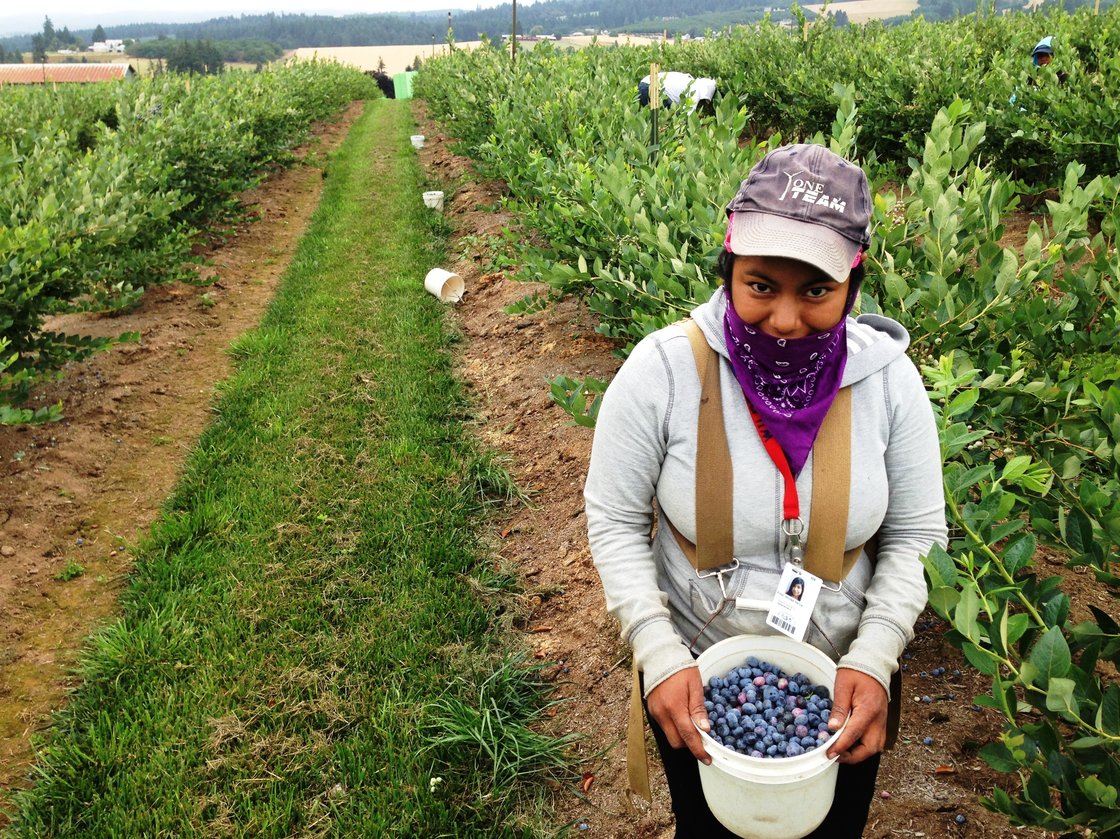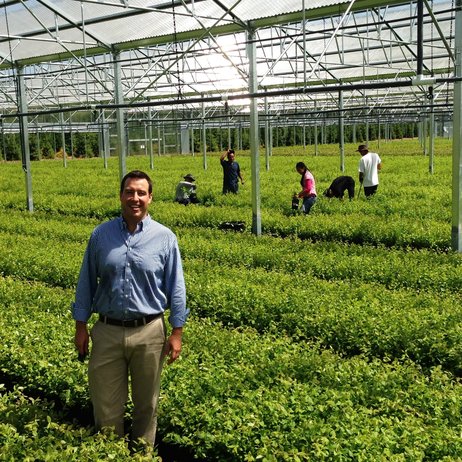
Listen to the Story on Morning Edition

Listen to the Story on Morning Edition
Post by Anna King, The Salt at NPR Food (8/16/2013)
The blueberries on your morning cereal are less expensive this year. That's because farmers are harvesting a bumper crop this summer. It's good news for berry lovers, but the bounty might wreck some blueberry growers.
In Richland, Wash., Genoa Blankenship pops open the lid on a box of blueberries. Her three young children struggle to stop wiggling. Blankenship loves the idea of healthy snacks that are easy to take along to soccer practice.

"We tend to eat blueberries at least twice a day. We start the day with blueberries at breakfast, and then we end the day with blueberries, and end with a bedtime snack of blueberries and oatmeal," says Blankenship.
It's just this type of enthusiasm for blueberries, along with stacks of reports about the health benefits of berries, that have helped the industry grow rapidly over the past 20 years. The USDA says the number of fields in the nation has nearly doubled in that time.
One of those fields is outside of Hillsboro, in western Oregon. Workers stoop over waist-high rows of blueberry bushes.
Farmer Roy Malensky says that this year, all that planting has caught up with farmers and packing houses. But there are several other factors that lined up this year to create the blue crush.
Malensky says that usually, somewhere in the U.S. or Canada, there's bad weather that takes some fruit out of the market — but not this year.
"We had all the different parts of the nation that were producing all at the same time. Usually, it's split up a little. Not this year. We had New Jersey, Michigan, Oregon, Washington, British Columbia — everyone sort of producing at the same time," says Malensky, "so we got this huge influx of fruit in."
Lead watchers of the crop at the USDA say the nation's hunger for the fruit might start topping off in the next few years. And the recently planted acres still aren't bearing all their potential fruit yet. This year's biggest problem for farmers is lower prices. Malensky says some growers in Oregon are getting 60 cents less a pound for fresh berries this summer compared with last year.
"Some of the farmers that haven't done a good job, that aren't getting decent production ... they could be having a tough year," he says.
Some will survive this year, but some will definitely drop out, he says. Still, not everyone is convinced that blueberry farmers will quit planting. Take Cort Brazelton. He and his family own one of the largest blueberry plant nurseries in the world. It's just outside of Eugene, Ore.
Brazelton shows me around his new greenhouse: the length of nearly 3 1/2 football fields, carpeted with blueberry plants.
"And we're able to grow anywhere between 3 to 5 million plants inside of this facility in any given year," says Brazelton.
And every one of these plants is already sold. Most are headed to farms in Mexico and Peru. Brazelton's betting in a big way that blueberries are going to continue being planted around the world, despite this summer's lower prices. And Brazelton says that's good news for consumers: Soon, fresh blueberries could be widely available year-round.
For now, farmers say this summer's bounty of fruit at low prices won't last. As the crop tails off and becomes harder to pick, the prices will hike up.
Back at the Blankenship household in Richland, Wash., 8-year-old Ben squishes handfuls of blueberries in his mouth all at once. He says these sweet treats can be summed up in one word: "Summer!"
That's one kid doing his part to keep up demand for blueberries.
Copyright 2013 NWNews.